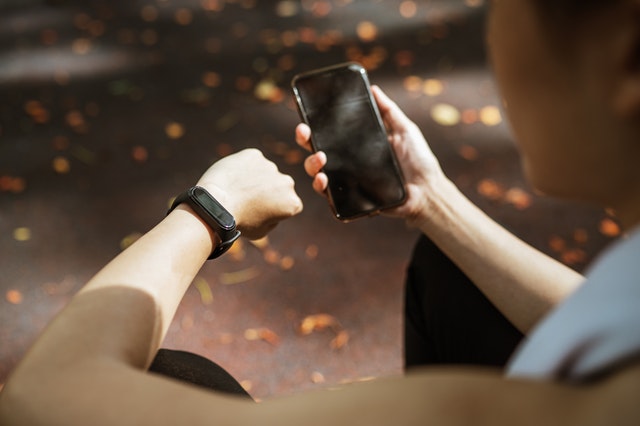Since their rise in popularity five to 10 years ago, smartwatches and fitness trackers have changed the way people approach fitness and health. While once upon a time individuals would only count the number of calories they burned while on a treadmill, today they are able to track their process at every waking moment. Not only that, but smart devices enable wearers to monitor their sleep patterns, count their calories, track their heart rates and more. While you, like so many others, may assume that this kind of insider knowledge can help you more easily stay motivated and hit your wellness goals, experts worry that the constant access to data may feed obsessive tendencies. These experts are not wrong.
Constant Tracking Causes Anxiety … And Feeds Addictive Tendencies

If you use a fitness tracking app, you know all too well how quickly fitness — or, rather, the data — can overtake your life. In your pre-app life, you may have gauged your level of fitness on how good you felt, how well your pants fit and how much energy you brought to each day. Since downloading the app, though, you may suddenly feel as if you’re not good enough when you struggle to meet that 10,000-step-a-day milestone.
For instance, your levels of anxiety may increase as the sun begins to set and you only have 8,000 steps logged. Feelings of inadequacy may creep in when you notice that your friend logged 1,000 steps more than you even though you’ve been awake for the same amount of time. Though you may be ashamed to admit it, you may have put a conversation on pause once or twice to jog in place or take a couple of laps around the room.
If you can relate to one or all of the aforementioned scenarios, you have tracking-induced anxiety. Though a new phenomenon, it is common and grows increasingly more so with each passing day. Instead of letting fitness tracking apps continue to zap the pleasure out of working out and nurturing your body, it may be time to revert to the old ways of monitoring your health. Chances are you will be happier for it.
[insert page='Offer' display='content']
Fitness Tracking Fosters Unrealistic Expectations

Somewhere between the development of fitness tracking apps and the surge in their popularity, a myth was born, and that is that you need to take 10,000 steps a day to achieve optimal health. There is no scientific basis for this assertion, and, in fact, most active people do not walk this much in a single day. Yet, not only does this myth prevail but also, it contributes to even more unrealistic expectations. These expectations can deter even the most motivated of individuals from walking daily. For people who are just starting out, they can be downright daunting.
Fitness Tracking Does Not Consider the Intensity of a Workout

For you to realize all the touted benefits of exercise, you must succeed at getting your heart rate up. Heart rate increases with the intensity of a workout, not with an increase in the number of steps you take. You can take 10,000 steps every day, but if those steps are taken at a slow pace, they may do you little good. However, if 1,000 of your 7,000 daily steps are taken during a high-intensity exercise, you may be better off than a person who routinely takes 10,000 steps per day. Fitness tracking apps do not take the intensity of a workout into consideration and, therefore, often provide inaccurate data.
The idea behind fitness tracking apps is admirable. Yet, there are several variables for which they do not account and, more worrisome, they cause more stress than they alleviate. For that reason, many people have given them up in 2022, and you should consider doing the same.

